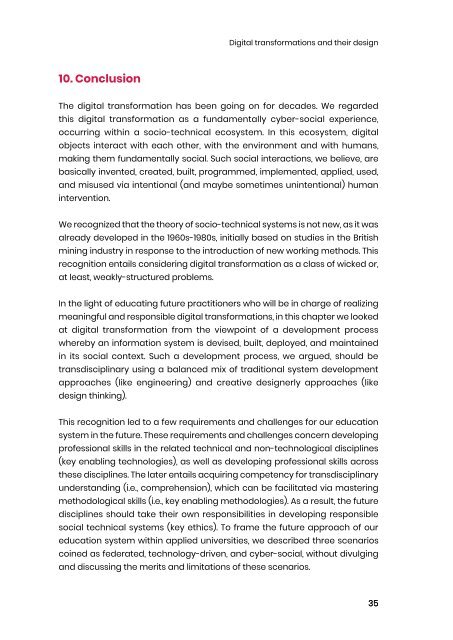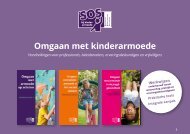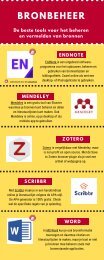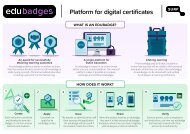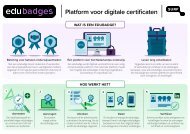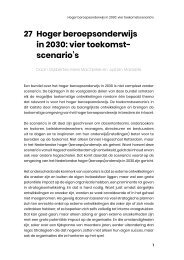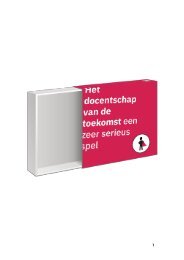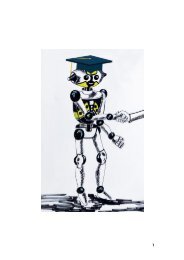13. Digital transformations and their design – renewal of the socio-technical approach
You also want an ePaper? Increase the reach of your titles
YUMPU automatically turns print PDFs into web optimized ePapers that Google loves.
<strong>Digital</strong> <strong>transformations</strong> <strong>and</strong> <strong><strong>the</strong>ir</strong> <strong>design</strong><br />
10. Conclusion<br />
The digital transformation has been going on for decades. We regarded<br />
this digital transformation as a fundamentally cyber-social experience,<br />
occurring within a <strong>socio</strong>-<strong>technical</strong> ecosystem. In this ecosystem, digital<br />
objects interact with each o<strong>the</strong>r, with <strong>the</strong> environment <strong>and</strong> with humans,<br />
making <strong>the</strong>m fundamentally social. Such social interactions, we believe, are<br />
basically invented, created, built, programmed, implemented, applied, used,<br />
<strong>and</strong> misused via intentional (<strong>and</strong> maybe sometimes unintentional) human<br />
intervention.<br />
We recognized that <strong>the</strong> <strong>the</strong>ory <strong>of</strong> <strong>socio</strong>-<strong>technical</strong> systems is not new, as it was<br />
already developed in <strong>the</strong> 1960s-1980s, initially based on studies in <strong>the</strong> British<br />
mining industry in response to <strong>the</strong> introduction <strong>of</strong> new working methods. This<br />
recognition entails considering digital transformation as a class <strong>of</strong> wicked or,<br />
at least, weakly-structured problems.<br />
In <strong>the</strong> light <strong>of</strong> educating future practitioners who will be in charge <strong>of</strong> realizing<br />
meaningful <strong>and</strong> responsible digital <strong>transformations</strong>, in this chapter we looked<br />
at digital transformation from <strong>the</strong> viewpoint <strong>of</strong> a development process<br />
whereby an information system is devised, built, deployed, <strong>and</strong> maintained<br />
in its social context. Such a development process, we argued, should be<br />
transdisciplinary using a balanced mix <strong>of</strong> traditional system development<br />
<strong>approach</strong>es (like engineering) <strong>and</strong> creative <strong>design</strong>erly <strong>approach</strong>es (like<br />
<strong>design</strong> thinking).<br />
This recognition led to a few requirements <strong>and</strong> challenges for our education<br />
system in <strong>the</strong> future. These requirements <strong>and</strong> challenges concern developing<br />
pr<strong>of</strong>essional skills in <strong>the</strong> related <strong>technical</strong> <strong>and</strong> non-technological disciplines<br />
(key enabling technologies), as well as developing pr<strong>of</strong>essional skills across<br />
<strong>the</strong>se disciplines. The later entails acquiring competency for transdisciplinary<br />
underst<strong>and</strong>ing (i.e., comprehension), which can be facilitated via mastering<br />
methodological skills (i.e., key enabling methodologies). As a result, <strong>the</strong> future<br />
disciplines should take <strong><strong>the</strong>ir</strong> own responsibilities in developing responsible<br />
social <strong>technical</strong> systems (key ethics). To frame <strong>the</strong> future <strong>approach</strong> <strong>of</strong> our<br />
education system within applied universities, we described three scenarios<br />
coined as federated, technology-driven, <strong>and</strong> cyber-social, without divulging<br />
<strong>and</strong> discussing <strong>the</strong> merits <strong>and</strong> limitations <strong>of</strong> <strong>the</strong>se scenarios.<br />
35


